Introduction – the period of 1st and 2nd Maccabees
During the period covered by the Books of 1st and 2nd Maccabees, the Jews were no longer masters of their own destiny or of the Land promised to them by God through Abraham, Isaac and Jacob, their fathers. Successive invasions had decimated the last remnants of the Davidic Kingdom and finally overrun it altogether resulting in the destruction of the Temple of Solomon and the Babylonian Exile after the fall of the southern Kingdom of Judah, leading to foreign occupation and domination of the Promised Land. Throughout all these persecutions and genocides, the Israelites faithfully preserved their faith in the One God, He who had liberated them from bondage in Egypt and brought them to the land promised their Fathers, flowing with milk and honey. It was this Faith in the One God and in the belief that they were His chosen people and firstborn amongst the nations that sustained them, along with the promise of the gathering of the Dispersion and a future Deliverer, a Messiah-King, anointed by God and foretold by His Prophets that would liberate them and once again restore the Davidic Kingdom in perpetuity.
After the Return and the rebuilding of the 2nd Temple in Jerusalem, a new and more insidious threat was beginning to take shape. This was not the wars, invasions and ethnic cleansings of the past where the aim was to possess the Land or to destroy Israel as a people. Those were easy. Fight or die. There was no other choice, no other means of survival. This new threat had, as its mission, the total obliteration of Yahwistic worship and the observance of the Law of Moses, the distinctive and covenantal statutes that distinguished Israel among the nations. The caveat this time was prosperity and honour for those who joined in the religion and lifestyle of the Greeks(1Macc 2:15-18), the conquerors of the known world with their wisdom and their philosophers, their culture and the cult of the Olympian pantheon, the Gods of the conquerors. Refusal and obstinacy? Death by torture to those who wished to hold on to the ways and the God of the defeated, to those who insist on backward and rustic practices of ritual cleanliness, quaint sexual mores and unintelligible dietary prohibitions not to mention the utter silliness of the Sabbath Rest. This was a new phase in Salvation History, a new, explicit test of the Faith of the Israelites in their God and the lengths to which they would go to keep His Law in the face of oppressive and brutal persecution.
In this complex situation of religious, economic and political tensions and turmoil, the actions of the Hellenizing Seleucid King Antiochus Epiphanes, a prototype of the Antichrist, brought things to a head. In his desire to remove the Jewish observances in the Torah which was seen as a source of conflict and potential rebellion within Judea, Antiochus tried to eradicate the distinctive identity of the Jews (1 Macc 1:41). By profaning and plundering the Temple and outlawing the Cult of Yahweh, however, Antiochus instead sparked the first Jewish war of independence as well as the first Jewish martyrdoms as recorded in the 1st and 2nd Books of the Maccabees.
Give the responses made by the Jews at the various stages of the Maccabean crisis.
*Pls note that the answer proper starts here, after the preceding Introduction in page 2
The Jewish Response
The matter stood thus. Antiochus Epiphanes decreed that the Jews “forsake the laws of their ancestors and no longer to live by the laws of God (2Macc 6:1)”. This is elaborated in 1Macc 1:44-49 where “he directed them to follow customs strange to the land, to forbid burnt offerings and sacrifices and drink offerings in the sanctuary, to profane Sabbaths and festivals, to defile the sanctuary and the priests, to build altars and sacred precincts and shrines for idols, to sacrifice swine and other unclean animals, and to leave their sons uncircumcised. They were to make themselves abominable by everything unclean and profane, so that they would forget the law and change all the ordinances.” The choices faced by the Jews were simple. “Whoever does not obey the command of the king shall die” (1 Macc 1:50). In the midst of these harrowing trials and tribulations unleashed by Antiochus, several options were open to the Jews. To resist was to condemn self and family to persecution by the occupying powers and ultimately death. To capitulate meant apostasy from the Faith of their Fathers and the God who rescued them from Egyptian bondage.
Resistance
Heroic Fidelity to the point of Martyrdom
For many of the Jews, the Law of Moses was what identified them as a people and set them apart from the nations around them. The One-ness of God as professed in the Shema (Deut 6:4) was also a distinctive among the polytheists in whose midst they lived. Trials and tribulations dot the history of Israel. Divine chastisement followed disobedience and the Covenantal fidelity of Yahweh and His final triumph over the enemy as related in the History of Israel in the Books of the Judges, Kings and Chronicles and foretold by the Prophets are things that were embedded in the Jewish psyche. So, for many, there was never really any choice to make. If fidelity meant death, then so be it for, for the Jews, God would raise them for their steadfastness while apostasy meant eternal loss.
Passive resistance and disobedience
The books of the Maccabees abound with examples of heroic fidelity to God and His Law. These did not take arms against the aggressors, because they were fully conscious that they were “suffering these things on our own account, because of our sins against our own God” (2nd Macc 7:18). Rather, they submitted to the torments in the hope that their suffering might serve an atoning, propitiating and expiatory purpose to placate the “wrath of the Almighty that has justly fallen on [their] whole nation” (2nd Macc 7:38) and induce Him to show mercy on Israel. (2nd Macc 7:18, 32-38. Esp. vv37- 38) Three well known examples will suffice to illustrate this form of response.
The martyrdom of Eleazar the aged and prominent Scribe (2nd Macc 6:18-31) shines forth like a beacon during the darkness Antiochene persecution. Even the “natural love of life” (2nd Macc 6:20) could not induce him to profane himself by eating anything unclean. What further stands out is his refusal to put on a show, consuming clean meat on the pretext of eating the unclean for the illuminating reason to “leave to the young a noble example of how to die a good death willingly and nobly for the revered and holy laws” (2nd Macc 6:28, cf 31).
The story of the mother and her seven children(2nd Macc 7: 1-42) who “are ready to die rather than transgress the laws of [their] ancestors” is another example of heroic fidelity to God and His law that has edified and inspired generations of martyrs in faithfulness to the shedding of their blood. Their hope in the justice of God and in the resurrection of the dead to eternal life and glory (2nd Macc 7:9, 14) as well as the Divine retribution in store for those that maltreat God’s own permeates their words and inspires their heroic deaths. They recognized the Creator as the giver of life and all its gifts and esteem the Gift-giver ahead of all His gifts (2nd Macc 7:11, 22-23) holding nothing of themselves back to glorify His Name “because of [their] hope in the Lord” (2nd Macc 7:20).
Two deserve special mention here, the mother and the youngest son. The example of the youngest son serves as a model of fidelity to God for the Church as well as us Christians today in his steadfastness when compromise and ‘accommodation’ would serve to not only preserved his earthly life but gain material wealth and power. Even when promised to be made “rich and enviable” if he “would turn from the ways of his ancestors”, and that the King “would take him for his Friend and entrust him with public affairs” (2nd Macc 7:24), the boy refused, preferring instead to die in the Faith of his Fathers and the friendship of God, hoping for a resurrection to life(v 14).
The mother shows the kind of selflessness that is the hallmark of one conscious of her own creatureliness and the transcendence of her Creator. “Although she saw her seven sons perish within a single day, she bore it with good courage because of her hope in the Lord” (2nd Macc 7:20). What could possibly induce a mother to forsake all her maternal instincts and encourage her youngest son to defy the King and suffer martyrdom? It was firstly the recognition that “it was not [she] who gave [her children] life and breath”(2nd Macc 7:22) and secondly and more importantly, she was animated by her confidence in the Creator who “gave [them] life and breath” and “will in his mercy give life and breath back to [them] again, since [they] now forget [themselves] for the sake of his laws” (2nd Macc 7:23). It is for this reason that, forsaking her maternal instincts, she calls them to be martyrs (witnesses) of the Faith and ‘accept death, so that in God's mercy [she] may get [them] back again" (2nd Macc 7:29).
The third example is the martyrdom of Razis (2nd Macc 14:37-46), the “Father of the Jews” and elder in Jerusalem. He took his own life, preferring “to die nobly rather than to fall into the hands of sinners” (2nd Macc 14:42). His manner of death might be different but his motivation and hope was the same as he gave up his life “calling upon the Lord of life and spirit to give them back to him again” (2nd Macc 14:46).
These were not the only ones who clung to the Law of God and their fathers. “Many in Israel stood firm and were resolved in their hearts not to eat unclean food. They chose to die rather than to be defiled by food or to profane the Holy Covenant; and they did die” (1 Macc 1:62-63).
Armed Resistance
When the prohibition of the Jewish Laws was first decreed by Antiochus and the people saw that fidelity meant death, many in Israel, esteeming the Law of their Fathers, went “into hiding in every place of refuge they had” (1 Macc 1:53 and also 2:29). These people, driven into a corner, resolved to fight. However, those resolved to take arms are faced with the same dilemma faced by modern Israel during the Yom Kippur War. When attacked by their enemies during the Sabbath, the very Law that they swore to uphold meant death to them. Early in the struggle, many esteemed the observance of the Sabbath over their lives. When surrounded by the King’s armies and forced to fight, they said, “’we will not come out, nor will we do what the king commands and so profane the Sabbath day.’ Then the enemy quickly attacked them. But they did not answer them or hurl a stone at them or block up their hiding places, for they said, "Let us all die in our innocence; heaven and earth testify for us that you are killing us unjustly." So they [the King’s forces] attacked them on the Sabbath, and they died, with their wives and children and livestock, to the number of a thousand persons.” (1 Macc 2:34-38. See also 2nd Macc 6:11)
Mattathias and other resistors soon came to the realization that "if [they] all did as [their] kindred have done and refuse to fight with the Gentiles” they will be quickly destroyed from the earth. So they made this decision that day: "Let us fight against anyone who comes to attack us on the Sabbath day; let us not all die as our kindred died in their hiding places." (1 Macc 2:39-41)
From this fateful decision, began the famous wars led by Mattathias and Judas Maccabeus and his brothers Jonathan and Simon after him. “They organized an army, and struck down sinners in their anger and renegades in their wrath; the survivors fled to the Gentiles for safety. And Mattathias and his friends went around and tore down the altars; they forcibly circumcised all the uncircumcised boys that they found within the borders of Israel. They hunted down the arrogant, and the work prospered in their hands. They rescued the law out of the hands of the Gentiles and kings, and they never let the sinner gain the upper hand. (1 Macc 2:44-48).
These wars and armed resistance by those committed to upholding the Law resulted is the re-Dedication of the Temple, Jonathan appointed High Priest, the restoration of many privileges and religious rights as well as the celebration of the Jewish Festivals and finally resulting the independence of Judea “from the yoke of the Gentiles” (1 Macc 13:41).
The driving motivation for these acts is summarized by Judas himself, echoing David before facing Goliath and foreshadowing St. Paul, in 1 Macc3:19-22: “It is not on the size of the army that victory in battle depends, but strength comes from Heaven. We fight for our lives and our laws. God himself will crush them before us;”
But the negative aspect of these wars and their outcome are the increasing secularization of the office of High Priest under Jonathan and Simon who functioned more as military and executive leaders rather than religious ones, assuming secular dress, titles such as ‘ethnarch’ and warlike powers whilst neglecting their priestly duties not to mention making covenants with Gentiles such as the Romans, Spartans and others.
Craven capitulation, apostasy and betrayal
After these luminaries, we number the apostates, those whose response to adversity and trial was to betray the Faith of their Fathers and their own people. Some did this under pain of torture but some “renegades”, even prior to the Antiochene decree, voluntarily petitioned the King to observe the ordinances of the Gentiles (1 Macc 1:13). These came to be called the Hellenizers, taking their name from the Hellenic or Greek practices and culture that they adopted such as building a gymnasium and removing the marks of circumcision.
After the Antiochene decree, “Many of the people, everyone who forsook the law, did evil in the land;” (1 Macc 1:52). “Many even from Israel gladly adopted [the King’s] religion; they sacrificed to idols and profaned the Sabbath” (1 Macc 1:43). An example would be the “Jew [who] came forward in the sight of all to offer sacrifice on the altar in Modein, according to the king's command” (1 Macc 1:23).
Betrayers also arose. Among them we number Alcimus, leader of “all the renegade and godless men of Israel” (1 Macc 7:5) who “brought to the king accusations his people”. In the same line is named “Simon, of the tribe of Benjamin” (2nd Macc 3:4 and 4:1) who invited foreign intervention and slandered Onias the righteous High Priest. Here also is named the Hellenizer Jason, brother of Onias who obtained the High Priesthood through simony (2nd Macc 4:7) and upon his ascension “at once shifted his compatriots over to the Greek way of life” (2nd Macc 7:10) and “destroyed the lawful ways of living and introduced new customs contrary to the law. He took delight in establishing a gymnasium and induced the noblest of the young men to wear the Greek hat. There was such an extreme of Hellenization and increase in the adoption of foreign ways because of the surpassing wickedness of Jason, who was ungodly and no true high priest, that the priests were no longer intent upon their service at the altar” (2nd Macc 7:12-14). In this line is also named Menelaus and Alcimus pretenders to the office of High Priest who through their scheming had brought misery and misfortune on the Jewish people.
Here, we also list the Quisling collaborators. Numbered among this groups are “the Hasideans [who] were first among the Israelites to seek peace from” Alcimus and his band. Their reward for collaborating is given in (1 Macc 7:12-17). We also list the response of “some of the priests from the sanctuary and some of the elders of the people came out to greet him [Nicanor] peaceably and to show him the burnt offering that was being offered for the king”. These also were rewarded mockery and derision.
Conclusion
As in ages past, God’s family, the Church today, is buffeted by storms and all manner of tempests as, guided by the Successor of the Rock on which Christ built His Church, she sails into the consummation of the age.
The Promise that the Gates of Hades will not prevail contains no provisions that the Gates of Hades will not try. As such, the responses of the Jewish people in the face of threats, trials and tribulations as was entailed in the Maccabean Crisis must not merely serve as a quaint footnote in our study of the Sacred Scriptures but must serve as a living model and an example for us Christians today. Let us not only be inspired by the heroic witness of those who obtained the crown of martyrdom in the hope of the Resurrection and in the Justice of a Righteous God but also learn from the cautionary example of those who, by ignoring God and forsaking His Covenant by looking for earthly glory and power, forfeit all hope of eternal bliss and a resurrection to life.
Unless otherwise noted, all Scripture readings taken from the New Revised Standard Version, Catholic Edition. Copyright © 1989, Division of Christian Education of the National Council of the Churches of Christ in the United States of America.
2 hours ago
![[Unam Sanctam]](https://blogger.googleusercontent.com/img/b/R29vZ2xl/AVvXsEiymQ2adTjpZ1ABhPBbBBquiPCxeQrc4Jy_97vOikT0wGQeJleriiXQy6ebnb0jrYe-TfvcK77txStB4aIwVAdD41ZdMkVfNtFGC0JX6LBV9B8mfeRZaIAM7Sj-011ag3DiKQzv/s1600/headerdivinemercy.jpg)












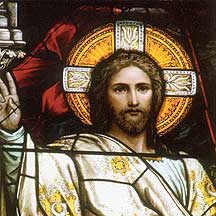







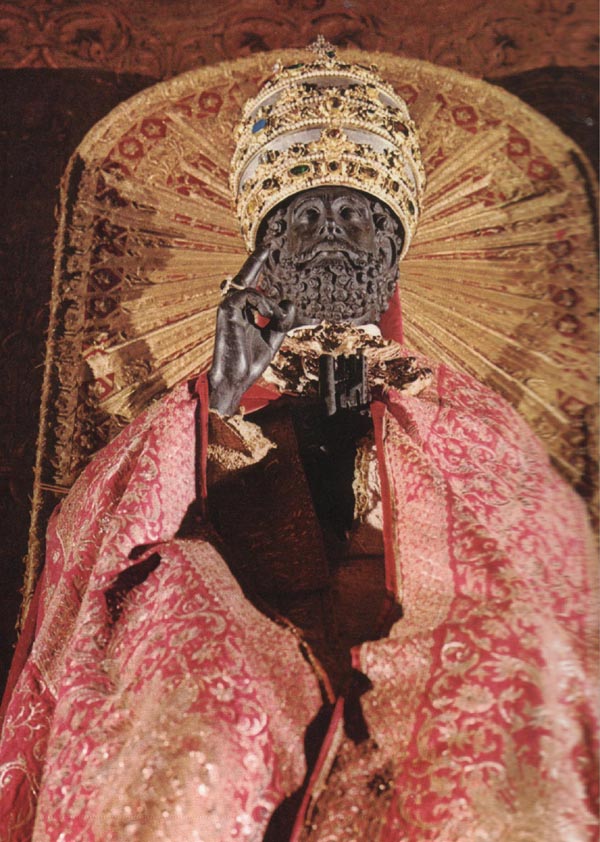
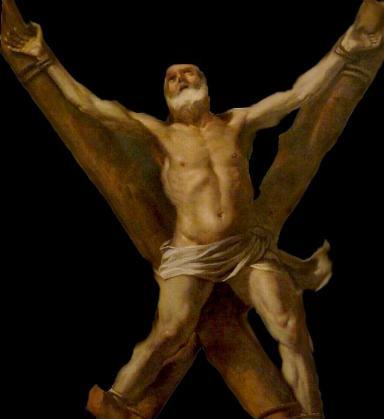




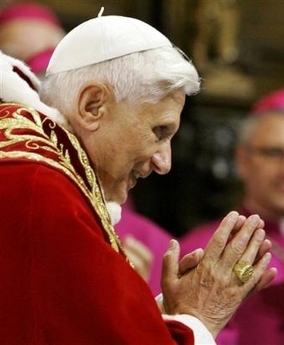






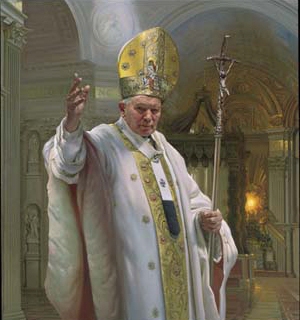
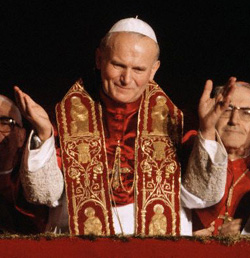
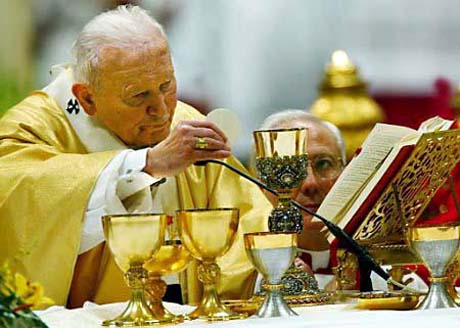







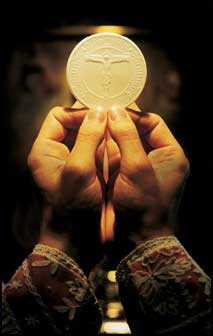
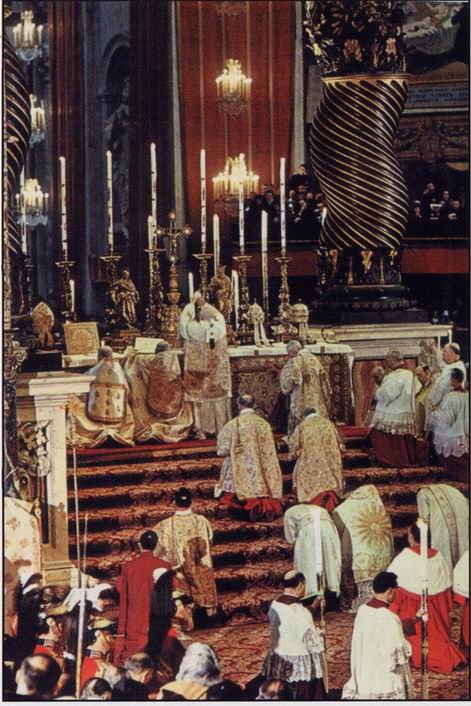

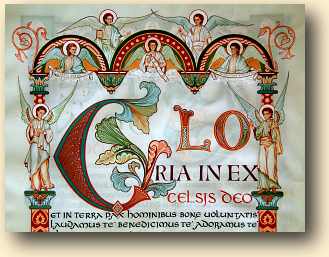

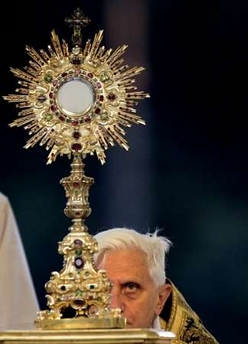


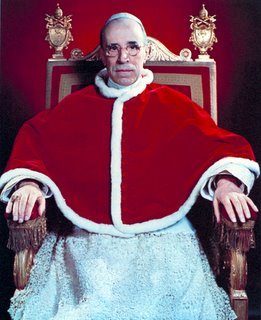




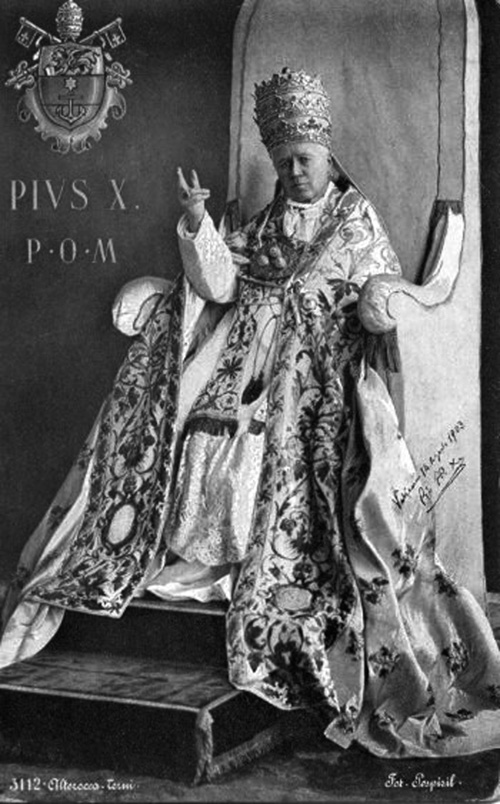



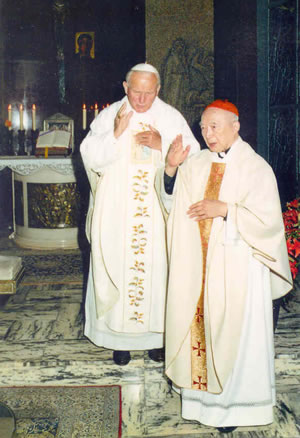






No comments:
Post a Comment